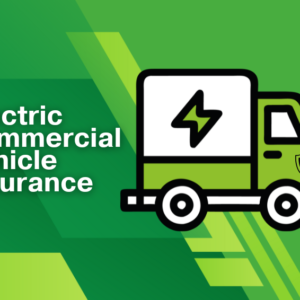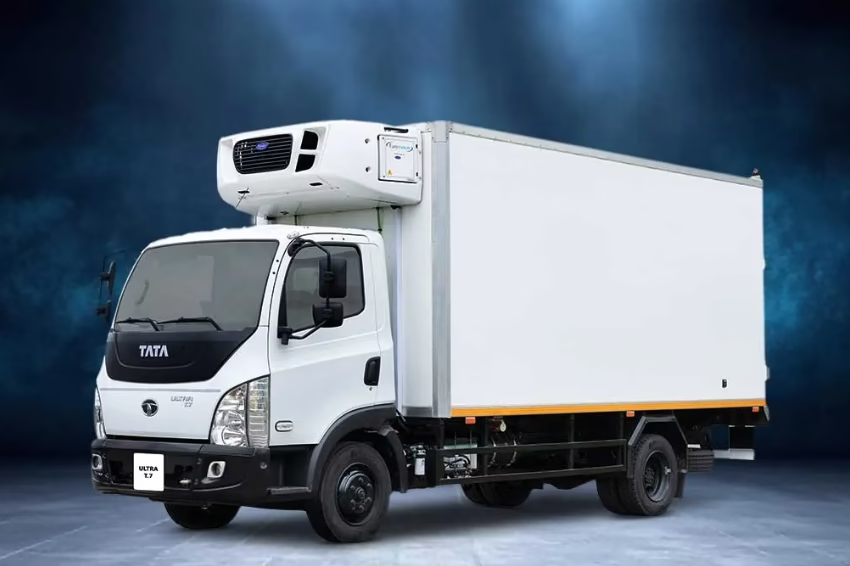There are various types of golf cart batteries. Among all, lead-acid and lithium-ion batteries are the most popular ones. Each of the battery types has its advantages and potential disadvantages.
One of the most significant aspects that differentiates the best golf cart battery from the rest is its performance and the price. In both lead and lithium-ion batteries, lithium ones are both excellent at performance, but also cost-effective. Where on the other hand, lead acid often lags in performance.
If you are the one who frequently upgrades the golf cart battery, you must know which will suit you in durability and budget. For that, you need to know everything about the batteries.
Never prefer money over durability. Because saving a penny for a moment’s mind ends up costing you more.
Lithium Ion Batteries
Just like lithium-polymer batteries, lithium-ion batteries are rechargeable lithium-ion-containing batteries that are smart and high-performance.
Pros Of Lithium-Ion Golf Cart Batteries
- Battery Life
On average, lithium batteries last for ten to twelve years. You can prolong the life span with proper maintenance and care. In addition, optimum charging also contributes to the golf cart battery lifespan. Similarly, overproduction leaves a negative impact.
Temperature and current supply are other factors that should be considered to ensure your battery performs well.
- High Electricity Density
125–600+ Wh/L is the energy density that lithium-ion batteries achieve, compared to 50–90 Wh/L for lead acid batteries. This implies that a lithium-ion battery may live eight to ten times longer than a lead-acid battery for the same energy.
Lithium cobalt oxide batteries have excessively high electricity density. It uses cobalt oxide as a cathode and graphite carbon as an anode. It is likewise used for laptops, smartphones, smartwatches, motors, and other gadgets that emit strength over longer durations.
- No Maintenance Is Required
Lithium-ion golf carts are maintenance-free or require minimum maintenance compared to the other batteries. Moreover, lithium-ion golf carts have no water levels to check.
- Lighter Weight
Lithium batteries are lighter in golf carts than other batteries. They employ lithium-ion as the main component of their electrodes, just like in a lithium battery. The lighter weight means the golf carts can reach their higher speed, require less effort, and carry more weight.
- Longer Battery Life Cycle
Lithium-ion batteries last longer than lead acid batteries because lithium increases the charge cycle number. Lithium-ion batteries are 4x faster than lead-acid batteries.
Lithium-ion batteries last too long. Energy is stored and released by the battery. Through an electrolyte, lithium-ion batteries switch between positive and negative electrodes.
Since cobalt, nickel, and manganese are among the numerous hazardous elements in lithium-ion batteries, they can potentially harm ecosystems and water sources if they leak out of landfills.
- Minimal Energy Waste
Lead-acid batteries are less efficient than lithium-ion batteries. Energy loss in lithium-ion batteries is negligible. This indicates that only 10–20% is wasted when charging. The battery’s internal resistance and heat production are the cause.
Disadvantages of Lithium Ion Batteries
Everything that has benefits has some disadvantages, too. Here are a few cons of lithium-ion batteries for golf carts:
- Expensive
Due to the increased cost of raw ingredients like cobalt and lithium and the more extensive manufacturing procedures, lithium-ion batteries are often more expensive to produce and buy.
Because of this, they could be less appealing for some applications, especially ones where money is a significant consideration.
- Safety Concerns
Lithium-ion batteries have some built-in safety concerns, worsened by poor handling. Overcharging the battery could lead to overheating and even explosions. To ensure it does not happen, unplug the charger once done.
How Many Lithium-Ion Batteries Do I Need For A 48v Golf Cart?
You can install as many batteries as will give you the desired mileage range if you’re utilizing 48V lithium batteries connected in parallel instead of installing a specific number to match the voltage requirements. In a standard golf vehicle, you may use as few as two batteries or as many as six.
What Is The Average Life Span Of A 48-V Lithium Golf Cart Battery?
Golf Carts with 48-volt batteries have a lifespan of between five and seven years, depending on usage, maintenance, and care. Their life may increase significantly by maintaining fluid levels, charging them often, and storing them properly.
What Is The Normal Range Of Lithium Batteries?
A fleet cart needs at least two batteries, each of which can run the vehicle 30 to 40 kilometers between charges. After two years of installation, users can add more batteries to the system if they want to increase its range. An extra battery will extend the range by around 15 to 20 miles.
Are Lithium-Ion Golf Cart Batteries Compatible With Golf Carts Or Golf Cars?
Battery Lithium Although Power lithium-ion batteries may be charged with the regular charger that came with your cart, we advise using one of our special LBP chargers (such as a 48V 20A charger) to obtain the longest possible life and best performance out of your golf cart batteries.
Are Regular Batteries Replaceable With Lithium Ones?
It is possible to swap out the standard battery for a lithium-ion one. The lithium-ion golf cart battery conversion is appropriate and compatible with the voltage needed for the golf carts. This procedure requires the connections, power box, and charger.
Is Overcharging Lithium Ion Batteries Safe?
Your golf cart’s battery may suffer if you overcharge it. Lithium-ion battery overcharging can lead to unstable situations and increased pressure. Lithium-ion batteries have the potential to burn, burst, and overheat. Even a tiny overcharging can lower the cell’s ability to discharge.
Lead Acid Batteries For Golf Carts
You might have heard of lead-acid batteries if you are a golf enthusiast and frequently buy gold cart accessories. The use of lead acid batteries is quite in surge these days.
Advantages of Lead Acid Batteries
- Battery Durability
Lead acid batteries are durable alternatives to other battery types. On average, a lead acid battery could last 4-6 years, depending on usage.
We can enhance the shelf life by ensuring the battery is watered periodically. You can also charge your battery from some external source to improve its performance further.
- Recyclable
One of the most important pros of lead acid batteries is their recyclable aspect. This advantage makes it an environmentally friendly alternative. We can reuse its body for the new battery production.
- Cheaper Alternative
Lithium-ion batteries are a good option if you are low on budget. Significantly, if you change your batteries too often, getting a cheaper yet durable alternative can save you from trouble.
Easy Maintenance
Lead Acid Batteries are easy to maintain and durable. You can work a little to keep your batteries in good shape. Timely charging and watering the batteries periodically can assure you of good performance.
Lead Acid Batteries Disadvantages
If you are considering buying lead acid batteries, it is necessary to be aware of their potential cons:
- Slow Charging
Lead acid batteries require 15-16 hours to charge fully. So, it is a disadvantage if you have a golf cart operated on a lead-acid battery.
- Limited Usable Capacity
The main disadvantage of lead acid batteries is their limited usable capacity. These batteries require frequent charging to operate it. Typically, the typical usage capacity for lead acid batteries is 50% of the standard capacity.
- Wasted Energy Efficiency
Another issue with the lead acid battery is energy waste. They waste as much as 15% of the energy put into them. So, if you are providing 100 amps of power, it only stores 85%.
How Much Energy Is In A Lead Acid Battery?
Lead acid batteries have a low energy density of 25-35W/kg, although they have passed through many years of development. The power density is as high as 150W/ kg. Low temperature can also affect the lead acid battery.
What Is The Efficiency Of A 12v Lead Acid Battery?
Efficiency is essential when considering the difference between lithium-ion and lead-ion batteries.
Battery efficiency means the ratio of energy retrieved from the battery to the extent of energy provided to the battery before coming back to the SOC state. It is measured in Coulomb.
Lithium batteries are 95% more efficient than lead-acid batteries.
Which One is Better: Lithium-ion Vs Lead Acid Battery
After carefully analyzing both lithium and lead acid batteries for golf carts, we have concluded that lithium-ion batteries take the lead. This is because these batteries manage the speed and power better than the former. On the other hand, lead acid batteries lag the performance and the speed.
In addition, lithium-ion batteries have better and longer shelf lives than lead-avoiding ones. They are more durable. Lithium-ion batteries have 10x more extended shelf life than the other golf cart batteries.
Wrap Up
Considering all the pros and cons, both batteries have their own respective advantages and disadvantages. If we believe in their popularity, lithium-ion batteries are the most preferred due to their rechargeable aspect.
Where lithium batteries are better in performance and maintenance and offer faster-charging capacity, lead acid batteries are durable, cheaper, and easy to manufacture alternatives.
It is pretty much up to you what suits your preference. If you are considering a cheaper alternative, then lead-acid batteries are good. However, lithium-ion batteries are your thing if you are looking for something durable and high-performance.






